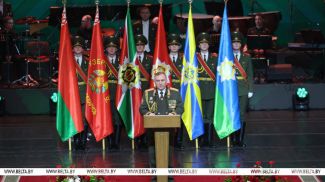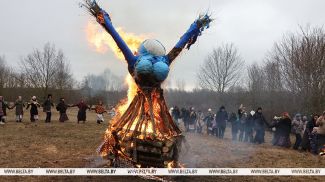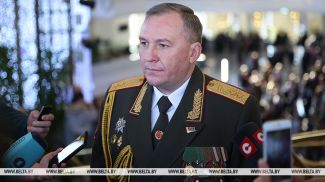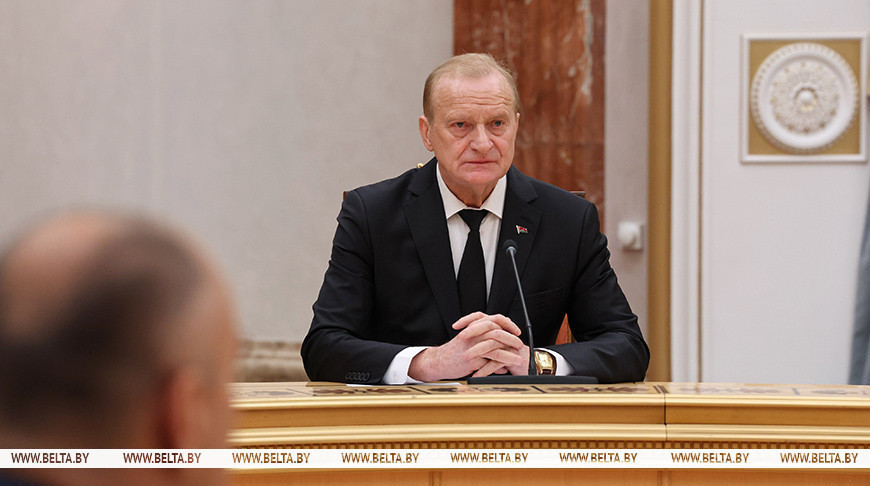
MINK, 17 October (BelTA) – We propose to rename the station in Antarctica from Gora Vechernyaya to Belorusskaya, Chairman of the Presidium of the National Academy of Sciences Vladimir Gusakov said at a meeting of Belarusian President Aleksandr Lukashenko with scientists and participants of Belarusian Antarctic expeditions in Minsk on 17 October, BelTA has learned.
The head of the National Academy of Sciences reported on the expeditionary activities, international cooperation and the results of scientific research.
Belarus began its journey to study the Antarctic in 2006, Vladimir Gusakov recalled. That year, the country joined the Antarctic Treaty (along with 57 countries, of which 29 have consultative status with voting rights in decision-making). "Our country is still an associate member of the treaty. We hope that in the near future we will also receive the status of a consultative member," he said. According to him, the country has already submitted an application, which will be considered at a meeting of the countries -parties to the treaty in Italy in 2025.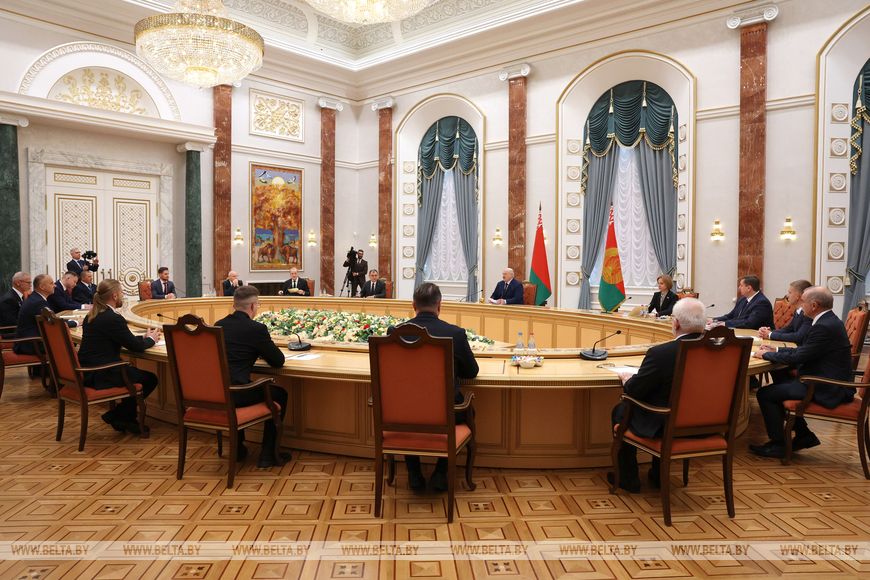 In 2007, the country created the National Center for Polar Research, which, among other things, organizes Belarusian Antarctic expeditions, selects candidates, and maintains the Antarctic station. Since then, Belarus has carried out 16 seasonal Antarctic expeditions. The 17th is being prepared now.
In 2007, the country created the National Center for Polar Research, which, among other things, organizes Belarusian Antarctic expeditions, selects candidates, and maintains the Antarctic station. Since then, Belarus has carried out 16 seasonal Antarctic expeditions. The 17th is being prepared now.
Vladimir Gusakov stressed that Belarus is party to 14 agreements on scientific and technical cooperation in Antarctica with governments and organizations from 9 countries (Russia, Bulgaria, Türkiye, New Zealand, the UK, France, Finland, Germany, Ukraine), and maintains strategic cooperation and mutual exchange of scientific personnel with Russia. "Belarus is part of the international communities for the exploration and development of Antarctica and maintains close interaction with foreign colleagues. Our country is a full partner and makes a significant contribution to the study of the continent," the head of the National Academy of Sciences said.
Speaking about the scientific research, he explained that the results obtained in Antarctica are unique and fundamental. In the Antarctic, Belarus studies atmospheric parameters, ozone layer, aerospace natural objects, makes geological, geophysical, seismological and meteorological observations, conducts complex analysis of biological diversity, and monitor natural ecosystems.
Vladimir Gusakov emphasized the practical nature of the research: "Due to the transparent atmosphere, this region is suitable for pre-flight calibration of the optical instrumentation of our spacecraft. For this purpose, a reference site has been created near the station."
"Antarctic scientific research contributes to the development of related sectors, including the design and manufacture of equipment and instrument base for extreme conditions," he added.
According to scientists' estimates, the region has rich mineral and biological resources. Its subsoil contains significant reserves of natural resources: oil, natural gas, coal, gold, silver, molybdenum, uranium. However, in accordance with the Antarctic Treaty, Antarctica shall be used only for peaceful purposes and scientific research. The treaty prohibits the mining of natural resources at the international level until 2049.
In conclusion, Vladimir Gusakov thanked the head of state for comprehensive support of activities in the Antarctic and addressed with a request to consider the possibility to rename the national Antarctic station Gora Vechernyaya to the station Belorusskaya. At present there are about 70 scientific stations of 30 states, including the Belarusian one, in the Antarctic. They include service and living quarters, technological, and environmental protection facilities, instrument complexes and scientific stations. This allows providing safe working conditions for polar explorers (up to 15 people) and organizing research in biology, atmospheric physics, climatology, geophysics and geoecology.
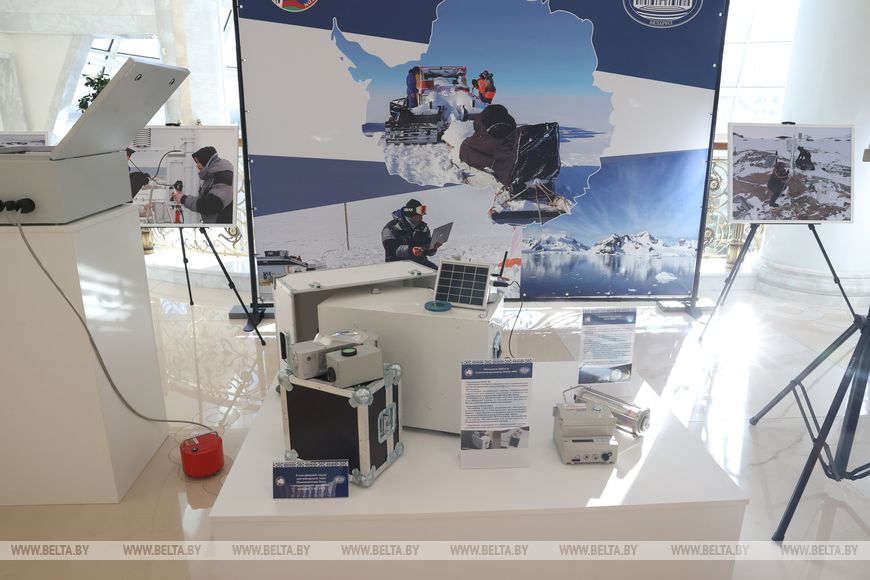
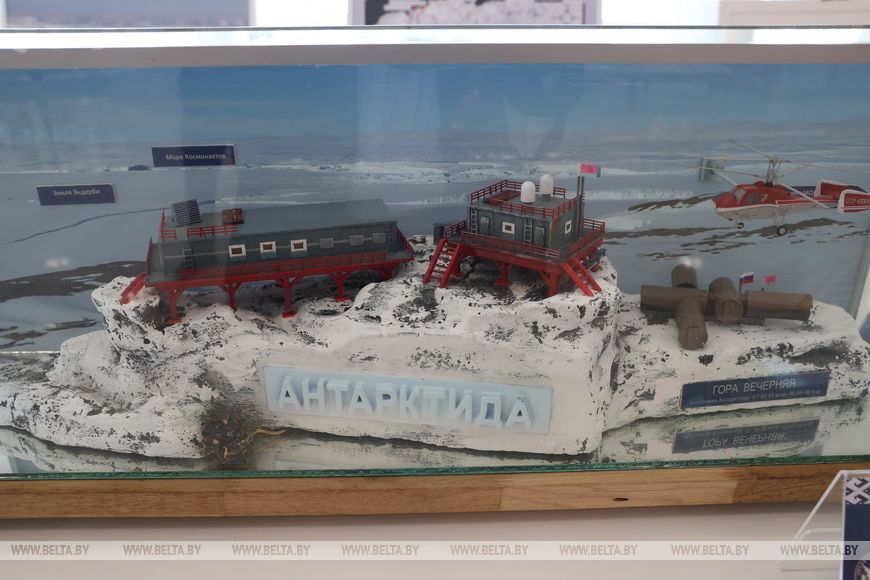
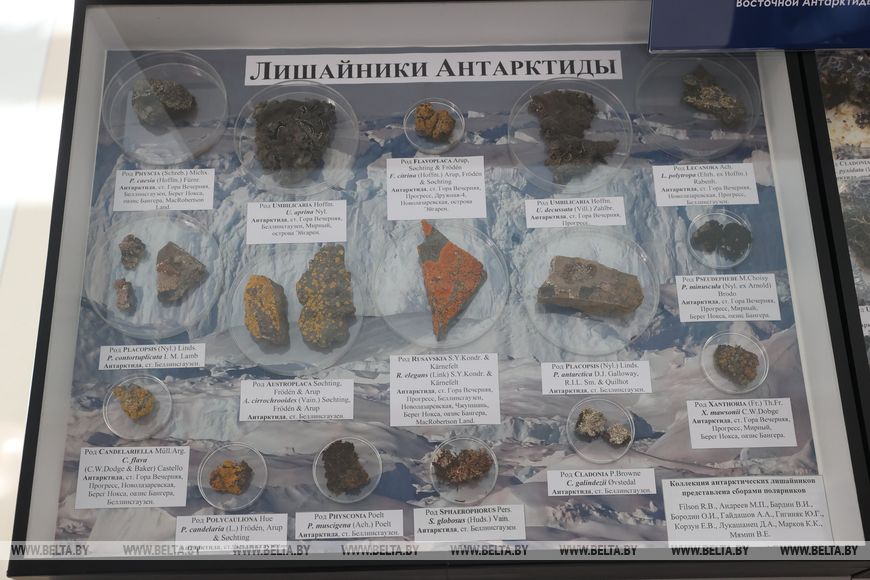
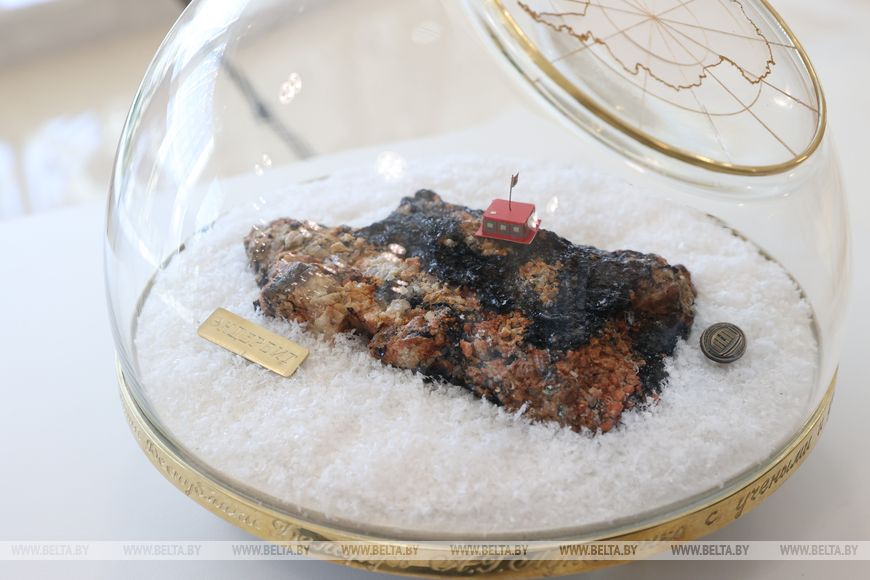
The head of the National Academy of Sciences reported on the expeditionary activities, international cooperation and the results of scientific research.
Belarus began its journey to study the Antarctic in 2006, Vladimir Gusakov recalled. That year, the country joined the Antarctic Treaty (along with 57 countries, of which 29 have consultative status with voting rights in decision-making). "Our country is still an associate member of the treaty. We hope that in the near future we will also receive the status of a consultative member," he said. According to him, the country has already submitted an application, which will be considered at a meeting of the countries -parties to the treaty in Italy in 2025.
 In 2007, the country created the National Center for Polar Research, which, among other things, organizes Belarusian Antarctic expeditions, selects candidates, and maintains the Antarctic station. Since then, Belarus has carried out 16 seasonal Antarctic expeditions. The 17th is being prepared now.
In 2007, the country created the National Center for Polar Research, which, among other things, organizes Belarusian Antarctic expeditions, selects candidates, and maintains the Antarctic station. Since then, Belarus has carried out 16 seasonal Antarctic expeditions. The 17th is being prepared now.
Vladimir Gusakov stressed that Belarus is party to 14 agreements on scientific and technical cooperation in Antarctica with governments and organizations from 9 countries (Russia, Bulgaria, Türkiye, New Zealand, the UK, France, Finland, Germany, Ukraine), and maintains strategic cooperation and mutual exchange of scientific personnel with Russia. "Belarus is part of the international communities for the exploration and development of Antarctica and maintains close interaction with foreign colleagues. Our country is a full partner and makes a significant contribution to the study of the continent," the head of the National Academy of Sciences said.
Speaking about the scientific research, he explained that the results obtained in Antarctica are unique and fundamental. In the Antarctic, Belarus studies atmospheric parameters, ozone layer, aerospace natural objects, makes geological, geophysical, seismological and meteorological observations, conducts complex analysis of biological diversity, and monitor natural ecosystems.
Vladimir Gusakov emphasized the practical nature of the research: "Due to the transparent atmosphere, this region is suitable for pre-flight calibration of the optical instrumentation of our spacecraft. For this purpose, a reference site has been created near the station."
"Antarctic scientific research contributes to the development of related sectors, including the design and manufacture of equipment and instrument base for extreme conditions," he added.
According to scientists' estimates, the region has rich mineral and biological resources. Its subsoil contains significant reserves of natural resources: oil, natural gas, coal, gold, silver, molybdenum, uranium. However, in accordance with the Antarctic Treaty, Antarctica shall be used only for peaceful purposes and scientific research. The treaty prohibits the mining of natural resources at the international level until 2049.
In conclusion, Vladimir Gusakov thanked the head of state for comprehensive support of activities in the Antarctic and addressed with a request to consider the possibility to rename the national Antarctic station Gora Vechernyaya to the station Belorusskaya. At present there are about 70 scientific stations of 30 states, including the Belarusian one, in the Antarctic. They include service and living quarters, technological, and environmental protection facilities, instrument complexes and scientific stations. This allows providing safe working conditions for polar explorers (up to 15 people) and organizing research in biology, atmospheric physics, climatology, geophysics and geoecology.









